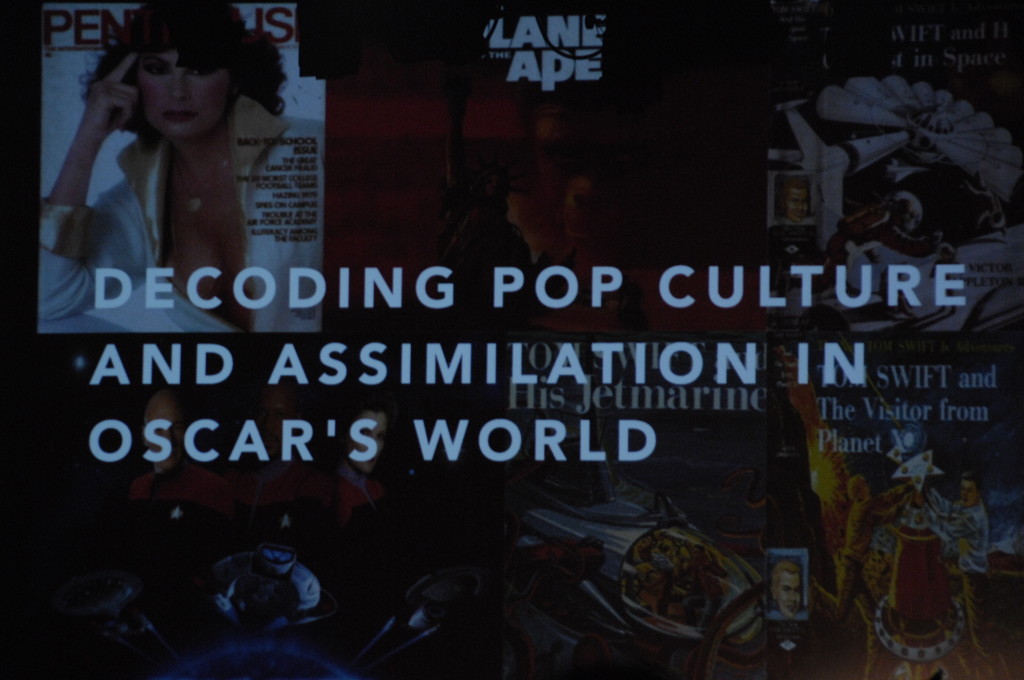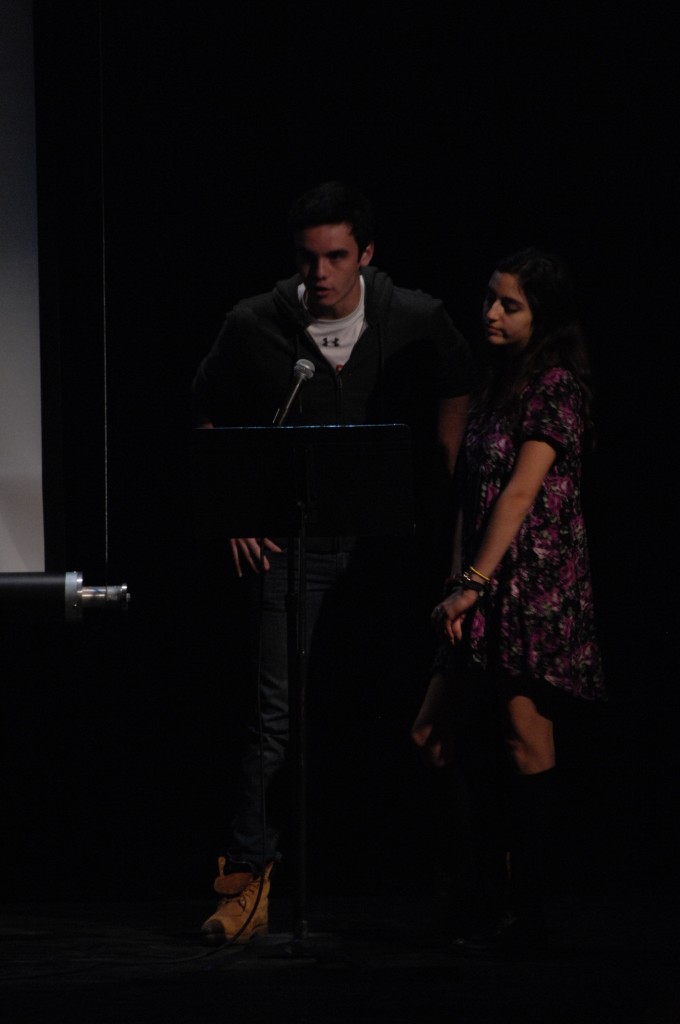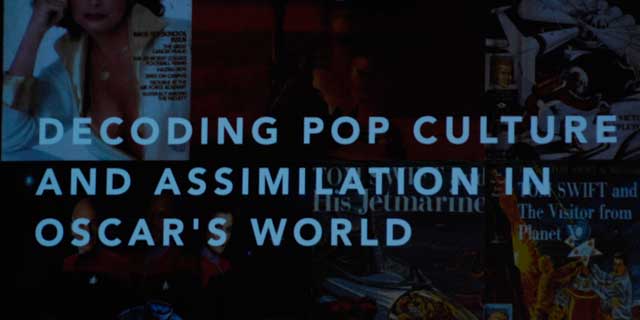
On November 15th, 1990, classes came to a grinding halt at Fieldston, as the entire school took part in what would later become a bi-annual tradition: Awareness Day. The first ever Modified Awareness Day (MAD) was a joint effort between Fieldston’s then P.A.C co-presidents Peter Gourdine and Kharry Lazarre-White. As president Gourdine put it, it was a day “to make people realize that outside the sheltered walls [in] which we live, there are problems which need to be addressed.” Today’s Awareness Days at Fieldston cover an even broader scope of topics; from political issues, to environmental worries, and even a day dedicated to the summer reading book. This year’s fall MAD (November 7th, 2013) was on Junot Díaz’s The Brief Wondrous Life of Oscar Wao. In his novel, Díaz has sparked ‘un debate apasionado’ far and wide regarding Dominican culture, feminism, and the era of Rafael Trujillo. What makes Díaz’s book ‘tan especial’ is its ability to move beyond the simple story of a young misfit, to a historical masterpiece — intertwined with a bit of fiction. Written using a mixture of Spanish, Spanglish, and English, Díaz crafted a detailed account of Dominican Culture in both the Dominican Republic, and the not-so-far-away state of New Jersey. From Penthouse Magazine to Marvel comics, Díaz paints a vivid image of the life of ‘un carajito torpe’ destroyed by the longstanding “fukú” placed over his head. Fieldston’s MAD workshops, like Díaz’s book, covered a wide range of issues; feminism in Dominican culture, life under Trujillo, immigration from the DR, latinos in New York City, and sex in narrative to name a few. Starting promptly at 10:55 AM, Drew Semler (Form V), Reede Goldberg (Form V), Jorge Vega (Director of Technology), and I (Form V) presented “The Psychology of Oscar” and “Decoding Pop Culture & Assimilation in Oscar’s World,” respectively. “The psychology of Oscar,” as Semler puts it, “is something we thought was worth looking into, because of the intense mood swings and internal struggles Oscar faces throughout the story.” Goldberg says that “to us, Oscar is the most complex character. His short-lived rise and prolonged downfall caused us to wonder what was going on inside his mind.” Meanwhile, in the Stu-Fac Jorge Vega and I gave a talk on the connection of ‘cultura pop y la vida dominicana’ . Vega, a self-proclaimed Latino ‘friki’ who came of age in the 80s, discussed how significant comics were in the novel, and to what extent Oscar’s character was shaped by them.

In the afternoon Adlai Coleman (Form V) and Reede Goldberg (Form V) discussed “Sex and Masculinity.” “Our MAD,” Coleman said, “was about how Junot Díaz portrayed the idea of manhood in Oscar Wao.” Díaz, in writing his novel, seemed to portray Dominican males as “machismo,” and these two were out to investigate if this was really the case. After the Masculinity workshop, at 12:45 PM, Lorena Rodas-Ramirez presented her investigation into “The Shadow of Trujillo: Life Under the Dictatorship.” For her session, Rodas-Ramirez brought in two speakers, José Fernández and Pelagio Sosa — both Latino men who had lived during the time of Trujillo. One of these men even lived in the Dominican Republic during his reign. “Many people hid wives from Trujillo because he went after all women,” Rodas-Ramirez translated for the crowd. To Trujillo, the Mirabel sisters “represented his worst enemies; they were women who resisted him.” Rodas-Ramirez and her guests concluded their MAD by discussing Trujillo’s ‘derrota final’ , and the long-standing effect he had on the Dominican Republic. Myles Cameron (Form V), and Justin Radin (Form V) took a look at the Mirabal sisters through the film In the Time of Butterflies. As Cameron puts it, “we watched the movie and then held a short discussion on people’s reactions, and tied in themes of living in the DR under Trujillo to the book.” MADs not mentioned here also created a buzz. For instance, Max Kassan (Form VI) and Kate Reynolds (English teacher) discussed the humorous, informative, and thought provoking footnotes sprinkled throughout the novel in a workshop titled ‘Faux Footnotes: Exploring Narrative Authority in The Brief Wondrous Life of Oscar Wao.’ “Through interactive writing exercises, and close examination of various footnotes in the text,” Kassan explains, “[our] session was designed so everyone would walk away with a greater understanding of the world of footnoting.” Emma Kassan (Form IV), Marcelo Rivera (Form VI), and Lorena Rodas-Ramirez led a period on the distorted images of Latinos in the U.S. Lastly, to conclude the day, Zach Jaffe (Form V), Max Kassan, and Maura Furfey (Spanish teacher) held a session on Latinos in New York City. All-in-all this was ‘un día’ packed with important discussions, thoughtful sessions, and enthusiasm throughout Fieldston’s student body. From Rafael Trujillo to comic books, Thursday’s MAD brought Dominican culture, a Latino New York City, and The Brief Wondrous Life of Oscar Wao to the Fieldston campus.
Below is a video produced following Fishman and Vega’s presentation.
http://www.youtube.com/watch?v=edulzJUw6ao






